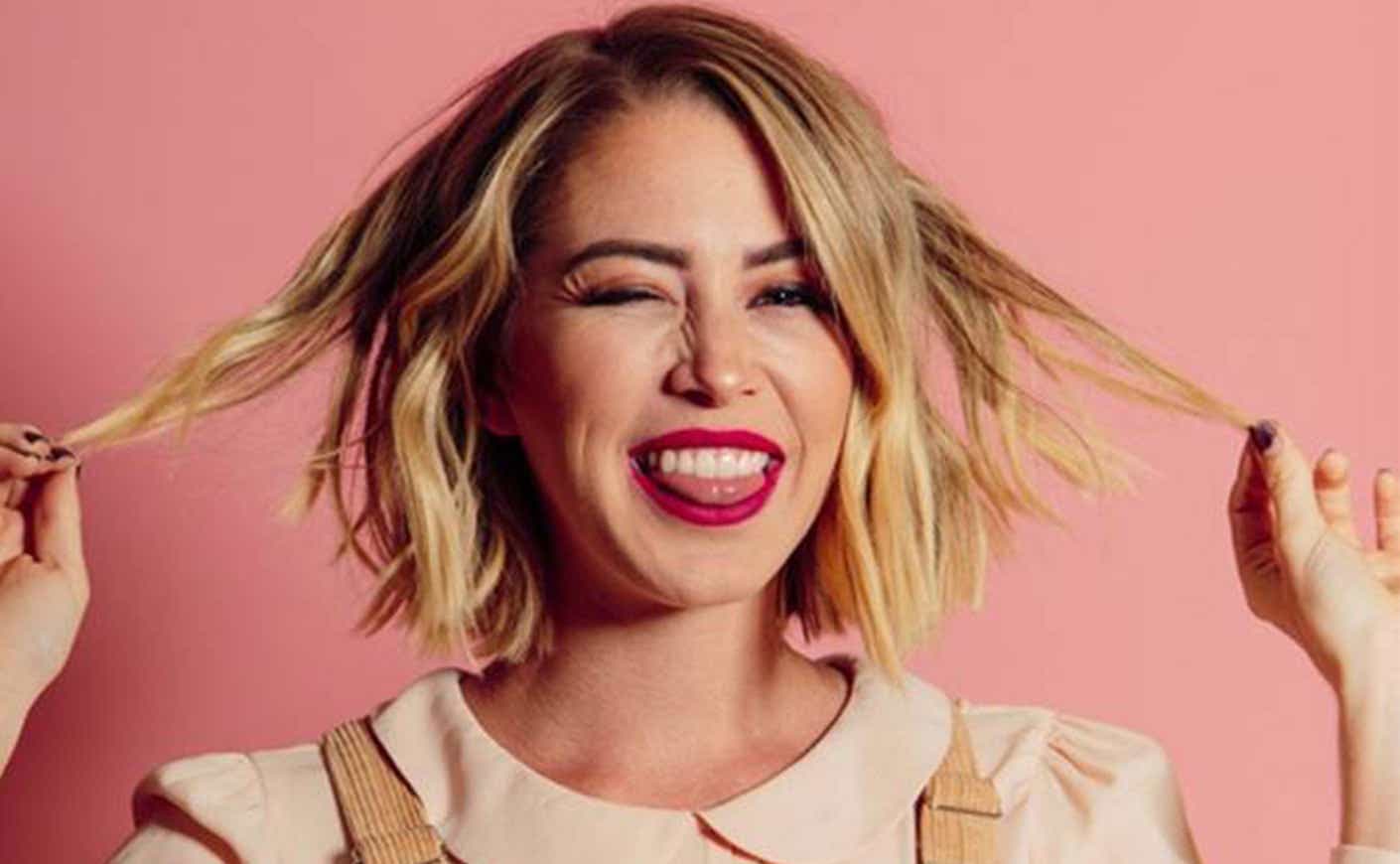Comedian Kelsey Darragh knows what it’s like to navigate the mental health system. Though she wasn’t officially diagnosed until her teenage years, she has struggled with major depressive disorder and panic attacks for much of her life. After more than 20 years of managing her mental health, she keeps returning to one piece of advice: “Find your community in unexpected places.”
For Darragh, that’s meant turning to social platforms like Facebook groups, WhatsApp chats and TikTok for support. In terms of professional help, she has also explored online therapy. “I want people to know that therapy does not have to come in such a traditional sense,” Darragh told KCM. “We think of an old white guy with glasses writing on a clipboard and you’re laying on a couch—that picture has got to go. We have got to embrace online therapy.”
Darragh first got her start by going viral on YouTube ten years ago with her video “Shit Girlfriends Say.” After building her own social following, she became a Buzzfeed video producer and later star before rising through the ranks to become a development partner at the company. In addition to being a cast member on the E! show Dating: No Filter, she’s now a mental health advocate and is currently working on a documentary on the subject.
Darragh is also hoping to use her struggles to provide a resource for others through her debut book, Don’t F*cking Panic: The Sh*t They Don’t Tell You in Therapy About Anxiety Disorders, Panic Attacks & Depression. The book functions as an interactive workbook, offering tips on how to manage depression and anxiety as well as how to find a therapist. “It was really important for me to create a book that was something you could carry around with you,” she says. “And at any moment, you’ll find relief.”
Darragh has struggled to navigate her mental health during the pandemic, saying it has led to a “collective trauma.” That’s backed up by a CDC report, which states that 4 in 10 Americans have reported symptoms of depression or anxiety during the pandemic—up from about 1 in 10 in 2019. As the number of people seeking help soars, more than 38% aren’t receiving the mental health services they need, even in states with the greatest access. That lack of support is hitting young people particularly hard: Among youth with severe depression, just 27% receive treatment on a consistent basis.
But for Darragh, there have been some silver linings to this undeniably painful moment. Like many of us, she’s had more time on her hands—and the ability to reevaluate how she spends it. Instead of doing her makeup every morning, she now opts for other routines, like doing yoga classes on YouTube.
“I didn’t recognize how much time I was wasting on trying to please other people,” she says. Like putting on makeup—I haven’t really worn makeup in a year and I realized, ‘Wow. That was an hour out of my morning.’”
Working from home has also allowed Darragh to reclaim some time; she hopes companies will continue to allow their employees that flexibility, even after more offices reopen. “I really implore employers and companies and big media corporations to take a look at their work from home policy, because I do think we had such an uptick in productivity during this time,” she says.
As the vaccine offers some hope of a return to normal, Darragh urges people to invest in their own self-care rituals and find relief from pressures brought on by the pandemic.
“Making time for yourself really is so important,” she says. “You have to be there for yourself before you can be there for somebody else.”
This story was written and reported by Tess Bonn.









